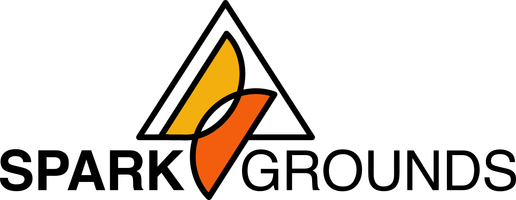FREE STEM & ART WORKSHOPS: April 25, May 9, and May 10
The Experiment Lab: Chemistry and Physics II
$325.00
1st to 6th Grade
Tuesdays @ 11:15AM or 4:15PM
Class Time
Please choose
1
The Experiment Lab: Chemistry and Physics II
Product Details
Unlock the scientist within through hands-on science experiments for 1st through 6th graders. $325
SparkGrounds Tampa Bay
7777 131st Street, Seminole, FL 33776
Two Options Available: Thursdays · 11:30 AM-12:30 PM, or Thursdays · 4:15-5:15 PM
Classes Begin the Week of August 18!
Get ready for a 15-class science adventure, designed to spark curiosity and excitement in 1st through 6th graders! This engaging, hands-on course introduces fresh chemistry and physics experiments that build on key scientific principles—just like the fun of Mr. Wizard and Bill Nye the Science Guy.
Through individual and group projects, students will explore the wonders of science with thrilling tests and dynamic labs. With new experiments and discoveries each week, this course keeps young minds engaged while reinforcing critical scientific concepts in an exciting, fast-paced format. Enroll today and let your child explore, experiment, and ignite their passion for science!
This is an introductory course similar in design to our Experimental Science; Chemistry and Physics class, but with completely different topics and projects. No previous experience is needed. All materials are provided, and students will be able to bring home some of their projects--as well as the knowledge needed to continue their work and experiments at home.
After enrolling, parents or guardians will be sent a liability release that includes expectations and rules. That document must be returned before the first class meeting. Partial, pro-rated refunds are always provided should a child unenroll before the end of the class.
This class is approved for the PEP and FES scholarships and can be purchased here or directly on the Step Up website.
WEEK #1: EXPLODING COLORS: Investigate the invisible forces at work in liquids by creating bursts of color in milk using soap and exploring how surface tension shapes the world around us..
WEEK #2: HOT AND COLD PACKS: Mix different substances to create chemical reactions that either absorb heat or release it, making your own reusable hot and cold packs.
WEEK #3: EDIBLE GLASS: Melt and cool sugar at different temperatures to create edible “glass,” learning about crystallization and the chemistry behind hard candy and movie stunt glass.
WEEK #4: SONIC BOOM: Use tuning forks, rubber bands, and homemade instruments to explore sound waves, vibrations, and how we perceive different pitches and volumes.
WEEK #5: MAGNETIC MARVELS: Investigate the power of magnets by making objects levitate, racing magnetic cars, and experimenting with ferrofluids..
WEEK #6: AIRBAGS: Create and test your own airbag system using chemical reactions to generate gas, then explore real-world applications of airbag science..
WEEK #7: PARACHUTE ENGINEERING: Design and build mini parachutes with different materials to test how size, shape, and weight affect their fall speed..
WEEK #8: HOMEMADE FIRE EXTINGUISHERS: Experiment with different chemical reactions to produce fire-extinguishing gases and learn how real extinguishers work.
WEEK #9: GLOW-IN-THE-DARK CHEMISTRY: Create glowing liquids and test phosphorescent materials while learning why some things shine in the dark.
WEEK #10: MARSHMALLOW PHYSICS: Build a vacuum chamber and then use it to make marshmallows expand and shrink while exploring the role of air pressure in our daily lives.
WEEK #11: ELECTRIFYING EXPERIMENTS: Discover the basics of electricity by constructing a working circuit with batteries, wires, and light bulbs.
WEEK #12: THE SCIENCE OF SPIN: Explore why spinning tops stay upright, how gyroscopes help balance spacecraft, and experiment with homemade spinning devices..
WEEK #13: SOLAR OVENS: Build a functional solar oven to cook s’mores while learning about heat transfer, insulation, and renewable energy.
WEEK #14: CHEMICAL ROCKET BLAST-OFF: BUILD: Harness the power of chemical reactions to launch small rockets into the air! Design, build the rockets first before setting them off the next week.
WEEK #15: CHEMICAL ROCKET BLAST-OFF: PRESENTATION: Use the previous week's work to create a hypothesis about the flight of the rockets before launching them in front of parents and guardians during the end-of-class party.
Note that the schedule (and especially what is done on each day) is subject to change based on the realities of each individual class.
Display prices in:USD

